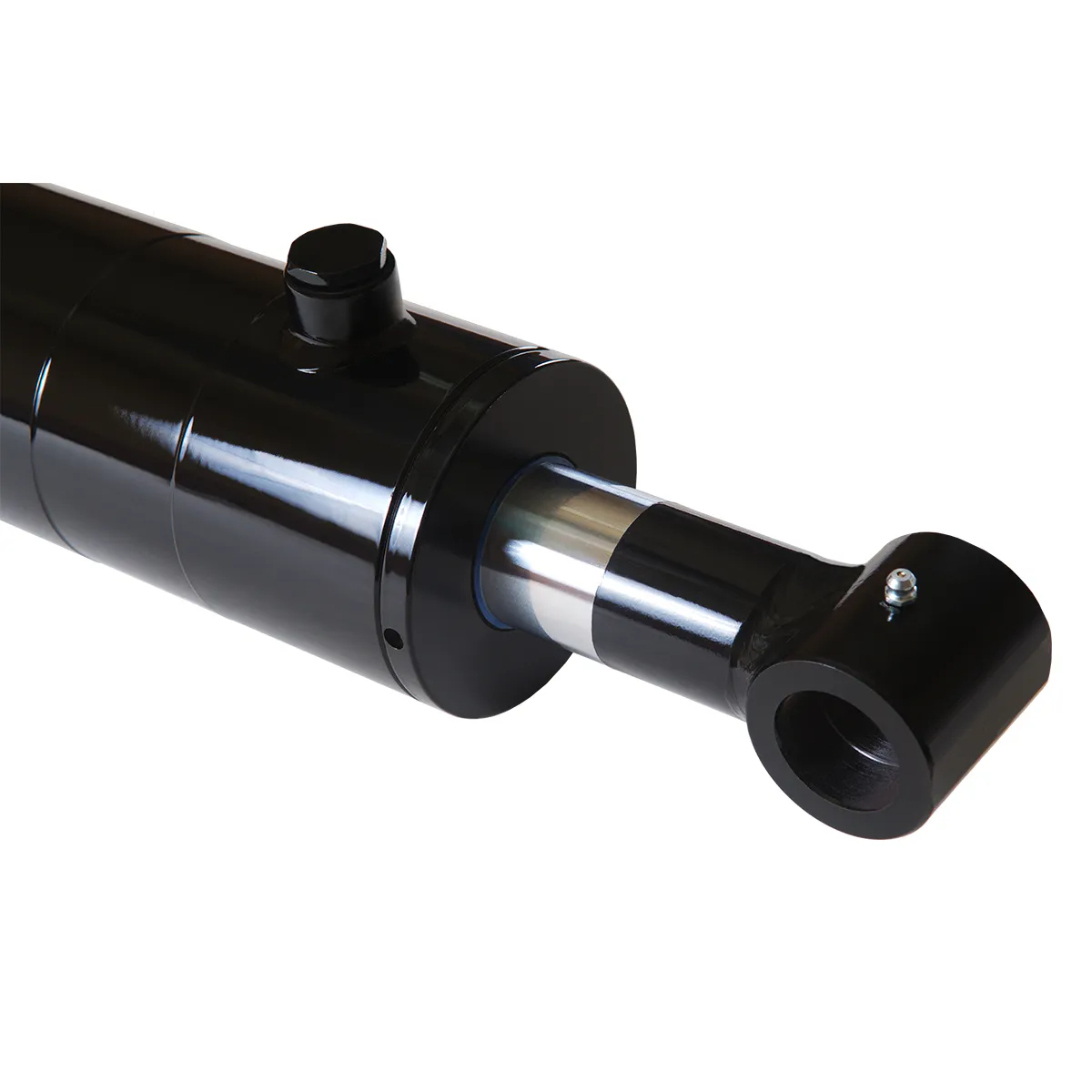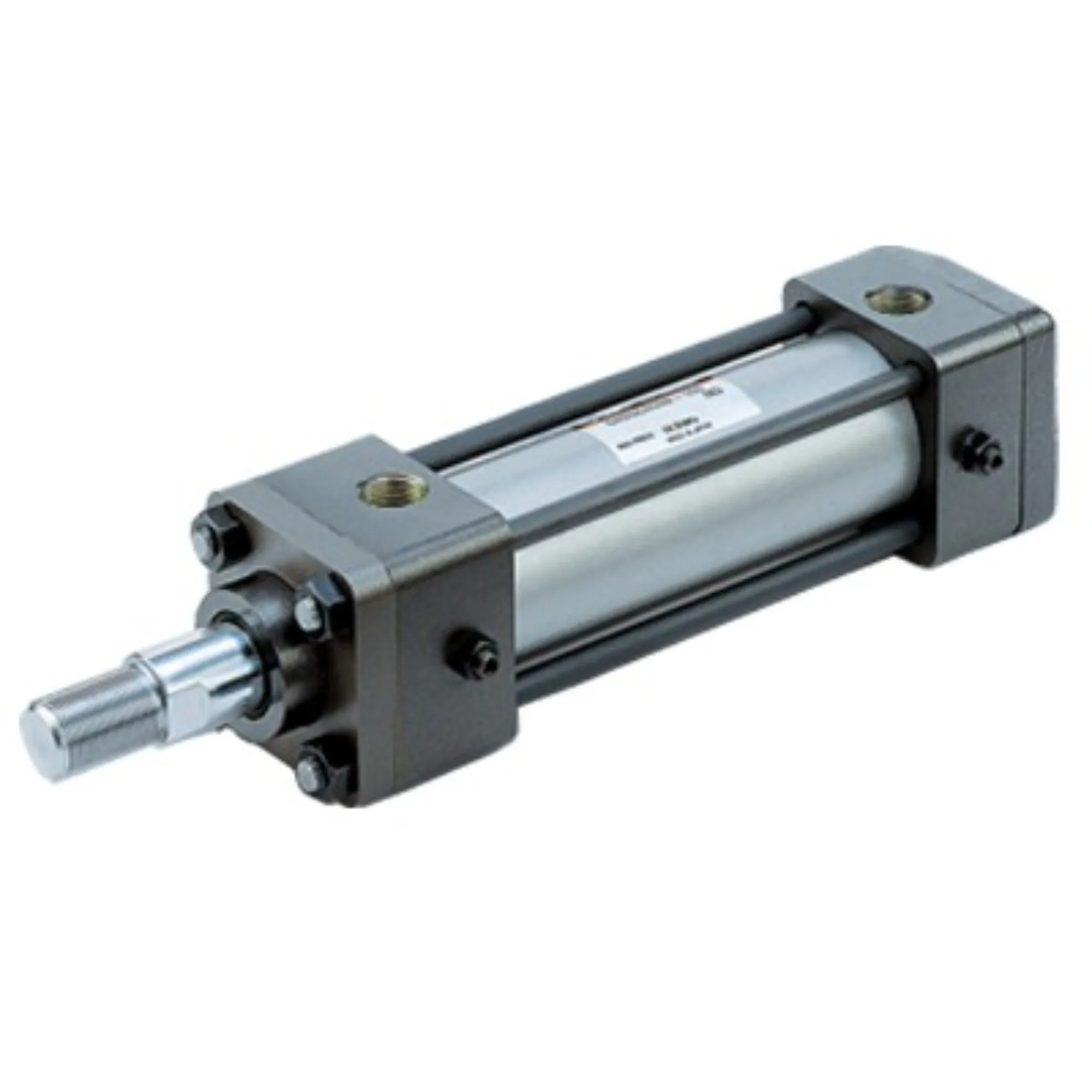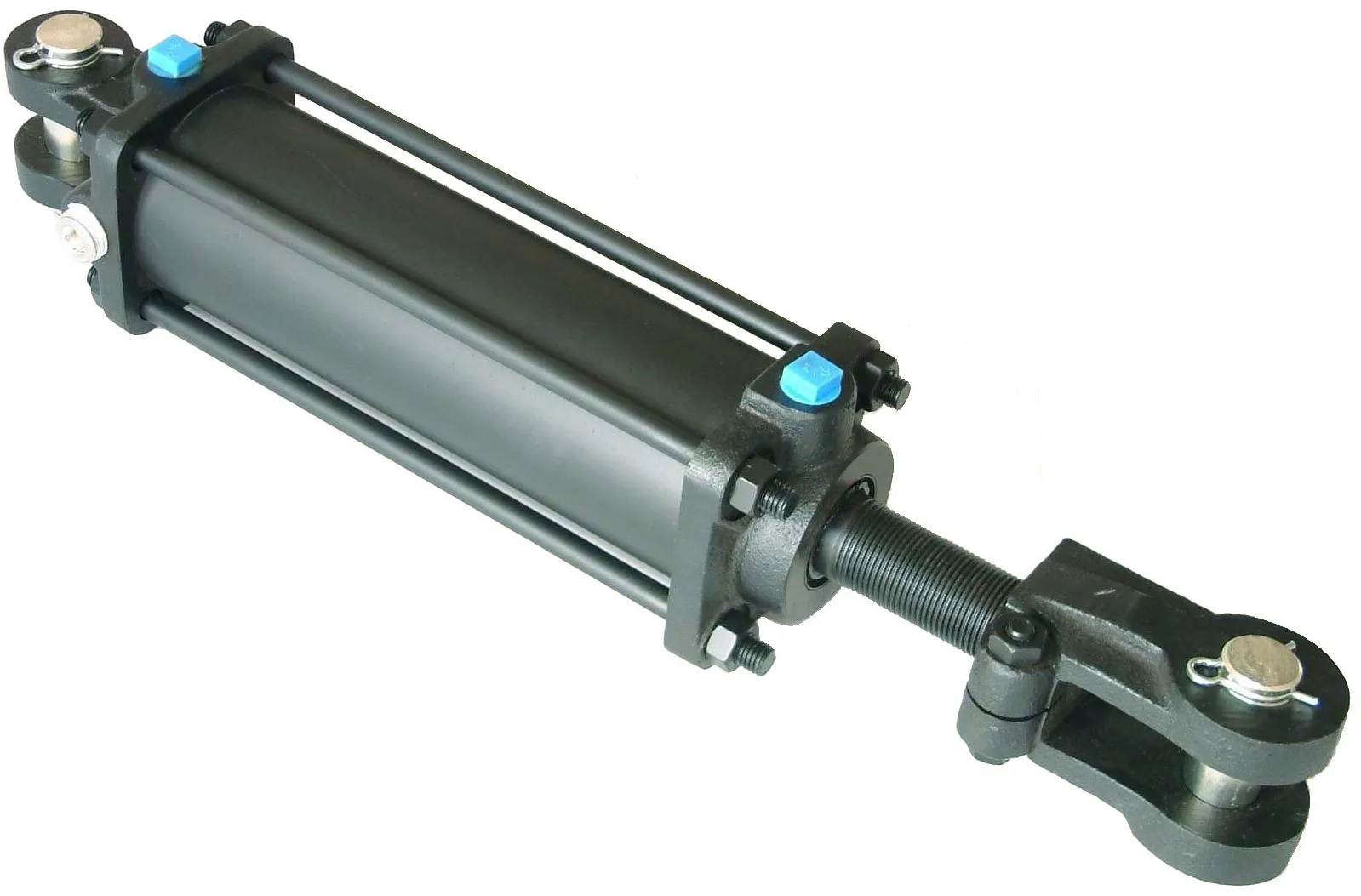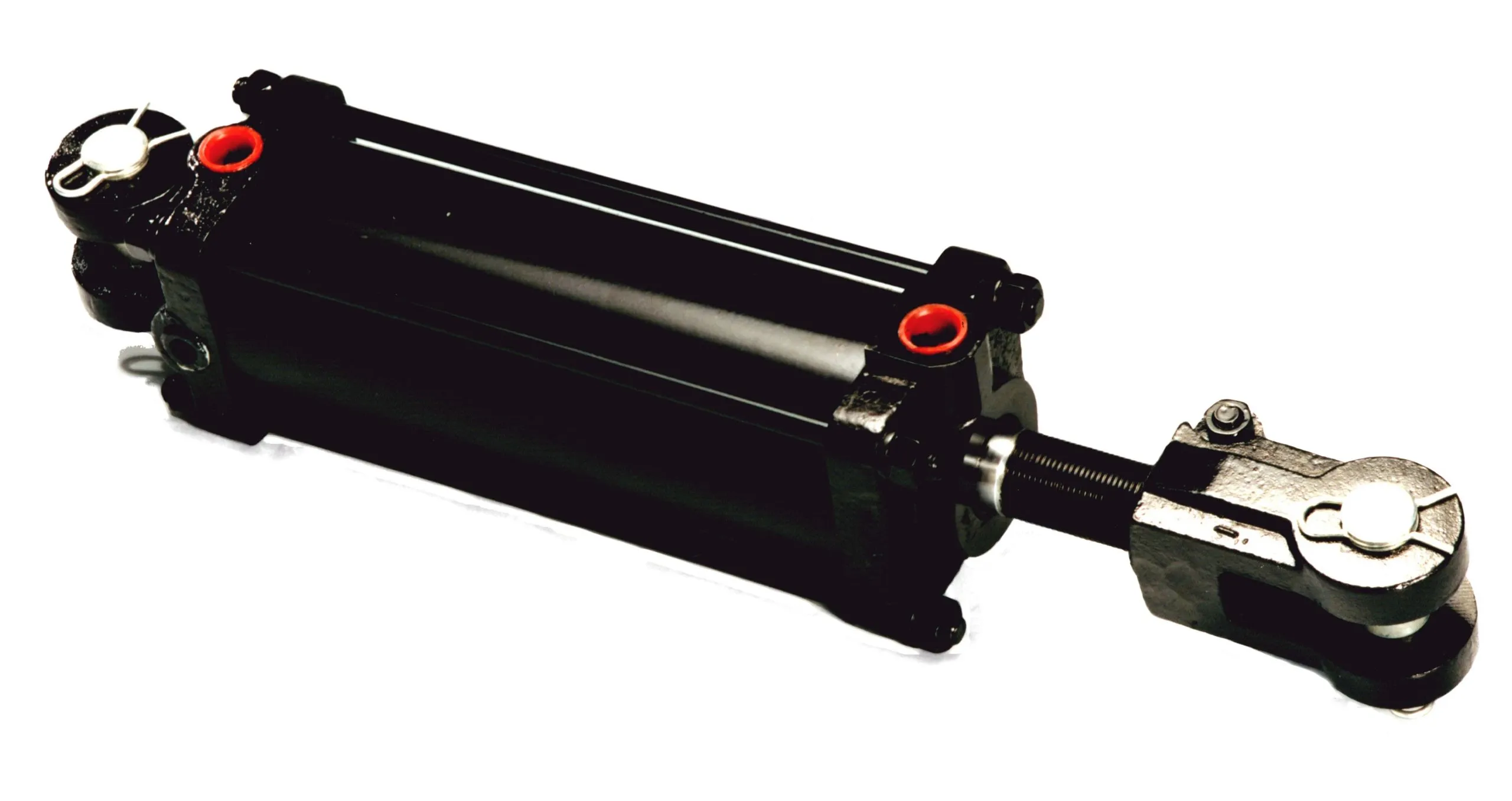Understanding Double Rod Single Acting Hydraulic Cylinder Compatibility With Fluids
Hydraulic systems are integral to various industrial applications, and understanding the compatibility of hydraulic cylinders with different fluids is crucial for optimal performance and longevity. Among the various types of hydraulic cylinders, double rod single acting hydraulic cylinders play a significant role in specific applications. This article explores the compatibility of double rod single acting hydraulic cylinders with various hydraulic fluids, focusing on their construction, operation, and the factors influencing fluid compatibility.
What is a Double Rod Single Acting Hydraulic Cylinder?
A double rod single acting hydraulic cylinder is designed to exert force in one direction while the return stroke is facilitated by an external mechanism, such as a spring or gravity. Unlike standard single-acting cylinders that only have a rod on one end, this design features a rod extending from both ends of the cylinder, allowing for improved balance and reduced side loads during operation.
Key Features of Double Rod Single Acting Hydraulic Cylinders

1. Two Rods for Balanced Operation: The presence of rods on both ends helps distribute force evenly, which is particularly beneficial in applications where stability and precision are key.
2. Compact Design: These cylinders can often operate in tighter spaces, making them suitable for installations where space is limited.
3. Single Acting Mechanism: They require fluid pressure to extend and rely on an external force to retract, which can enhance application versatility.
Hydraulic Fluids: An Overview
Hydraulic fluids are essential for transferring power within hydraulic systems. They can be classified into various categories, including:
1. Mineral Oil-Based Fluids: These are the most common types of hydraulic fluids, derived from refining crude oil. They provide excellent lubrication and thermal stability.
2. Water-Based Fluids: These include water-glycol and water-oil emulsions, which offer fire resistance but generally have lower lubrication properties compared to mineral oils.
3. Biodegradable Fluids: With increasing environmental concerns, biodegradable fluids made from natural esters are gaining popularity. They offer a sustainable option while maintaining effective performance.
4. Synthetic Fluids: These fluids are designed to provide specific properties, such as enhanced lubrication or fire resistance, making them suitable for specialized applications.

Compatibility Factors for Hydraulic Fluids and Double Rod Single Acting Cylinders
When selecting a hydraulic fluid for a double rod single acting hydraulic cylinder, several compatibility factors must be considered to ensure efficient operation and longevity.
1. Material Compatibility
The cylinder’s construction materials, such as seals, rods, and body, must be compatible with the selected hydraulic fluid. Common materials include:
– Steel: Often used for the cylinder body due to its strength and durability.
– Aluminum: Lightweight and corrosion-resistant, making it suitable for specific applications.
– Seals: Typically made from materials like Nitrile, Viton, or polyurethane, which have different compatibility with various fluids.
2. Temperature Range

Different hydraulic fluids operate effectively within specific temperature ranges. For instance:
– Mineral Oils: Generally suitable for temperatures ranging from -20°C to 80°C.
– Water-Based Fluids: Typically have a lower operating temperature limit and may degrade at elevated temperatures.
– Synthetic Fluids: Can often withstand higher temperatures but may have a narrower operational range.
Understanding the temperature characteristics of both the cylinder and the fluid is critical to preventing breakdowns or failures.
3. Viscosity
Viscosity, or the fluid’s resistance to flow, plays a vital role in hydraulic performance. The viscosity must match the cylinder’s requirements to ensure smooth operation and optimal response times. Fluids with too high or too low viscosity can lead to issues such as:

– Cavitation: Occurs when the pressure in the cylinder falls below the vapor pressure of the fluid, leading to the formation of bubbles that can cause damage.
– Poor Control: Incorrect viscosity can result in sluggish or overly rapid movement of the cylinder, affecting precision.
4. Additives
Hydraulic fluids often contain additives to enhance performance. Common additives include:
– Anti-wear Agents: Protect against wear and tear on moving parts.
– Corrosion Inhibitors: Prevent rust and corrosion within the system.
– Foam Inhibitors: Reduce foam formation that can impair system performance.
Understanding the additives in both the fluid and the cylinder materials is essential to ensure compatibility and prevent adverse reactions.
5. Environmental Concerns
As industries strive for sustainability, the environmental impact of hydraulic fluids is becoming increasingly important. Biodegradable fluids are preferred in applications where spills could contaminate the environment. Compatibility with the cylinder materials and seals must be verified to prevent failures.
Testing for Compatibility
To ensure the hydraulic fluids are compatible with double rod single acting hydraulic cylinders, several testing methods can be employed:
1. Material Testing: Conduct tests on seals and components with the selected fluid to analyze potential swelling, degradation, or loss of mechanical properties.
2. Performance Testing: Run the cylinder under operational conditions using the chosen fluid and monitor for any irregularities in function, such as leaks or sluggish movement.
3. Long-term Exposure Tests: Simulate extended use of the fluid with the cylinder to observe any long-term effects on performance and material integrity.
Common Applications of Double Rod Single Acting Hydraulic Cylinders
Double rod single acting hydraulic cylinders are utilized across various industries, including:
– Manufacturing: For assembly line automation and material handling.
– Construction: In machinery such as excavators and backhoes for lifting and moving heavy loads.
– Agriculture: Used in tractors and other equipment for effective lifting and precise control.
– Automotive: In hydraulic presses for shaping and forming metal components.
Understanding the fluid compatibility for these applications ensures optimal performance and reliability.
Preventive Maintenance Tips
Maintaining double rod single acting hydraulic cylinders can prolong their lifespan and performance. Here are some preventive maintenance tips:
1. Regular Fluid Checks: Monitor fluid levels and replace fluids that show signs of contamination or degradation.
2. Seal Inspections: Routinely inspect seals for wear and tear, replacing them as necessary to prevent leaks.
3. System Cleanliness: Keep hydraulic systems clean to prevent contamination that can affect fluid performance and cylinder operation.
4. Temperature Monitoring: Ensure that the operating temperature remains within the recommended range for both the fluid and the cylinder.
5. Operational Checks: Regularly test the system under load to verify that the cylinder operates smoothly and efficiently.
Conclusion
Understanding the compatibility of double rod single acting hydraulic cylinders with various fluids is paramount for ensuring optimal performance in industrial applications. By considering material compatibility, temperature ranges, viscosity, additives, and environmental concerns, users can select the right hydraulic fluid for their needs. Additionally, proper testing and preventive maintenance can significantly enhance the durability and efficiency of hydraulic systems.
For those seeking high-quality hydraulic components, including double rod single acting hydraulic cylinders, consider EVER-POWER. Their extensive range of hydraulic solutions is designed to meet the demanding requirements of various industries, ensuring reliability and performance.
